top of page

CASE2 RESULTS
(1) timeseries
(2) cross-section plots
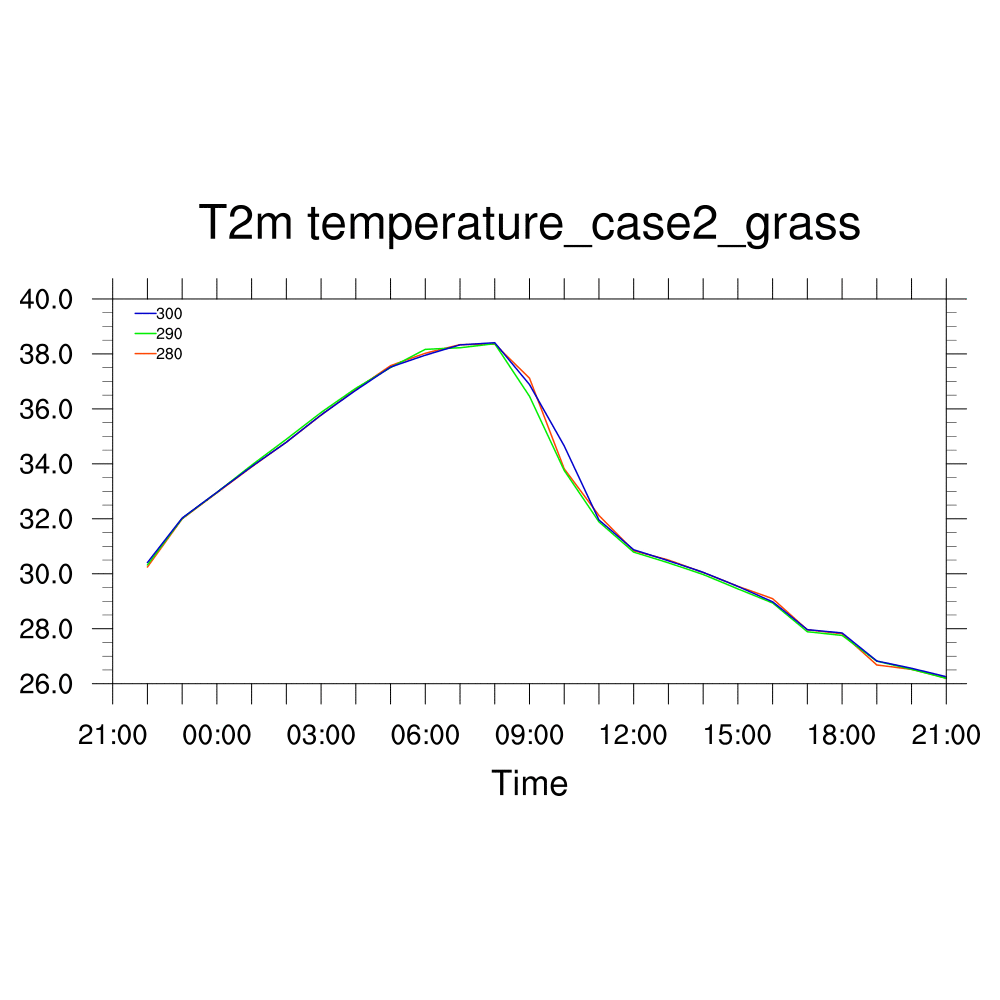
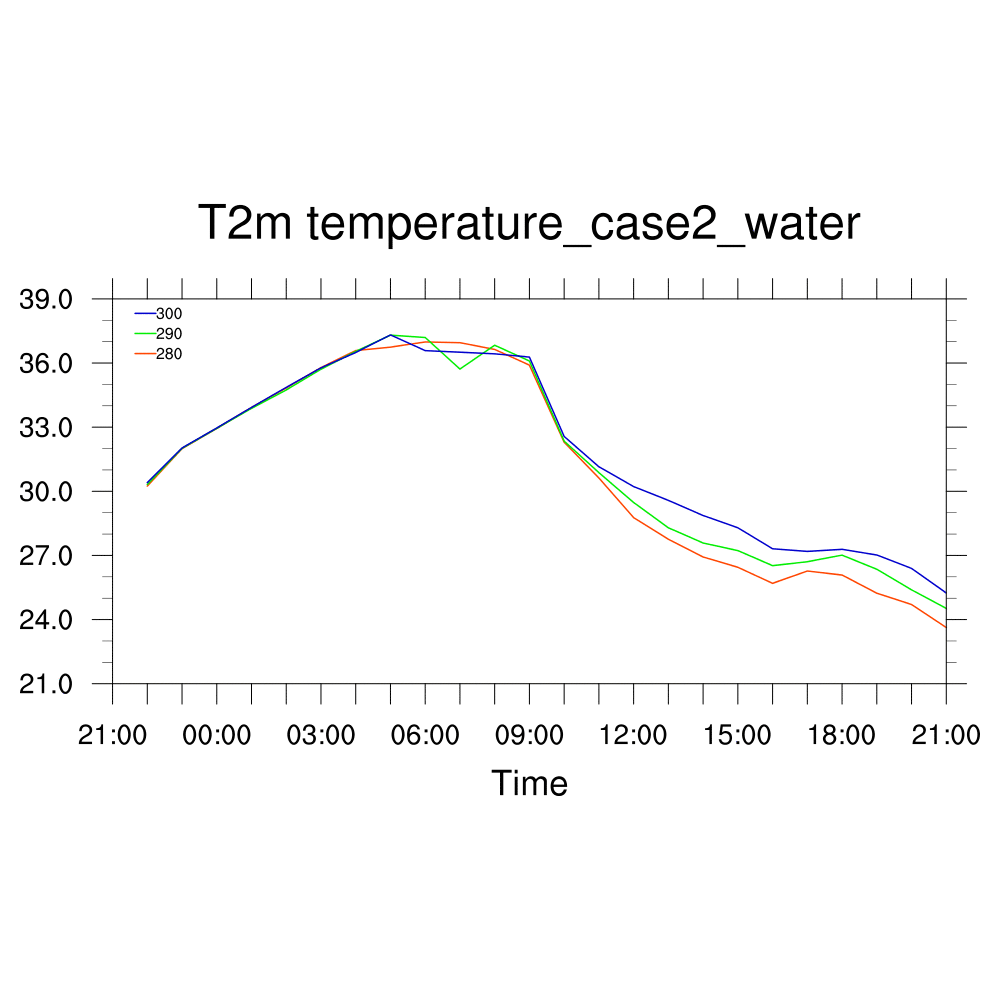

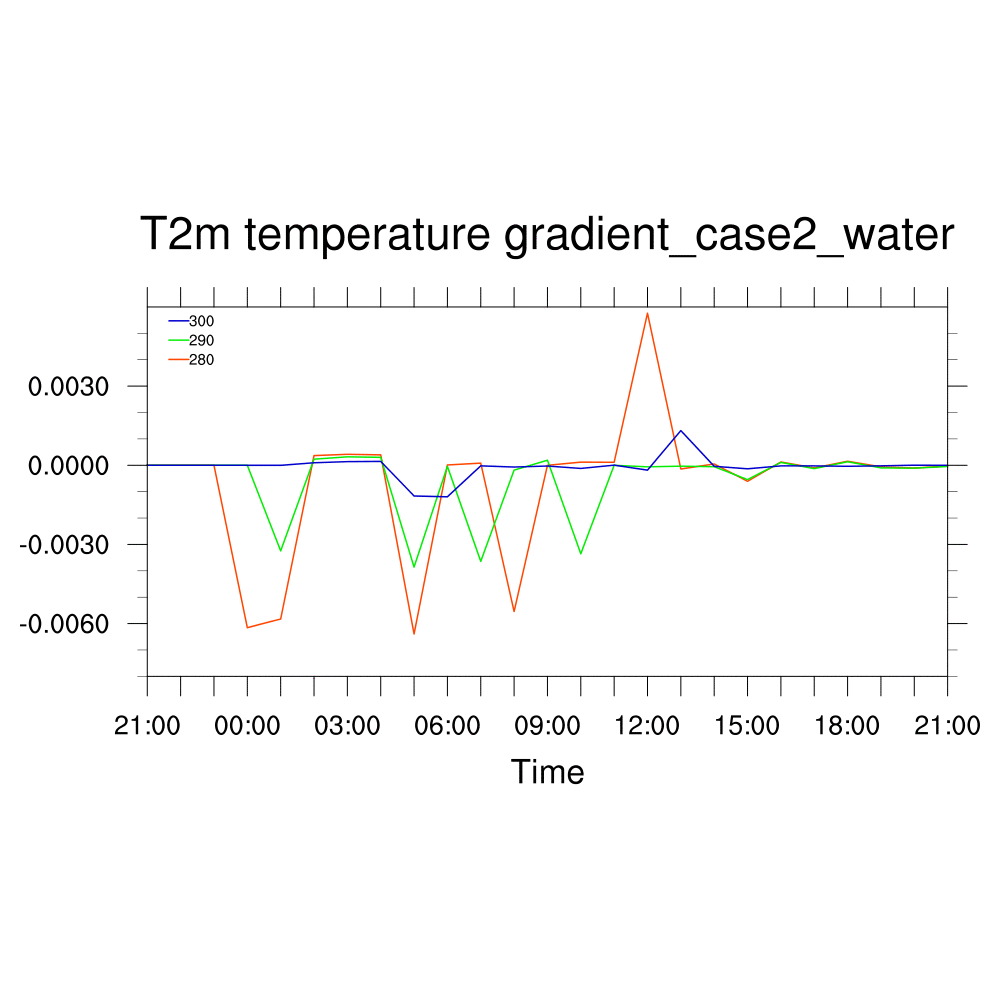


In the same 40km of grass at the edge + 20km of grass at the center of urban composition, with the initial temperature as the only variable, min and max temperature is almost constant, on average 26.2176℃ and 38.3790℃, so that temperature difference of max and min temperature is almost same, on average 12.1614℃.
In the same 40km of water at the edge + 20km of water at the center of urban composition, with the initial temperature as the only variable, min and max temperature is almost constant, on average 24.4658℃ and 37.2033℃, so that temperature difference of max and min temperature is almost same, on average 12.7375℃.
(2) cross-section plots
280K
grass
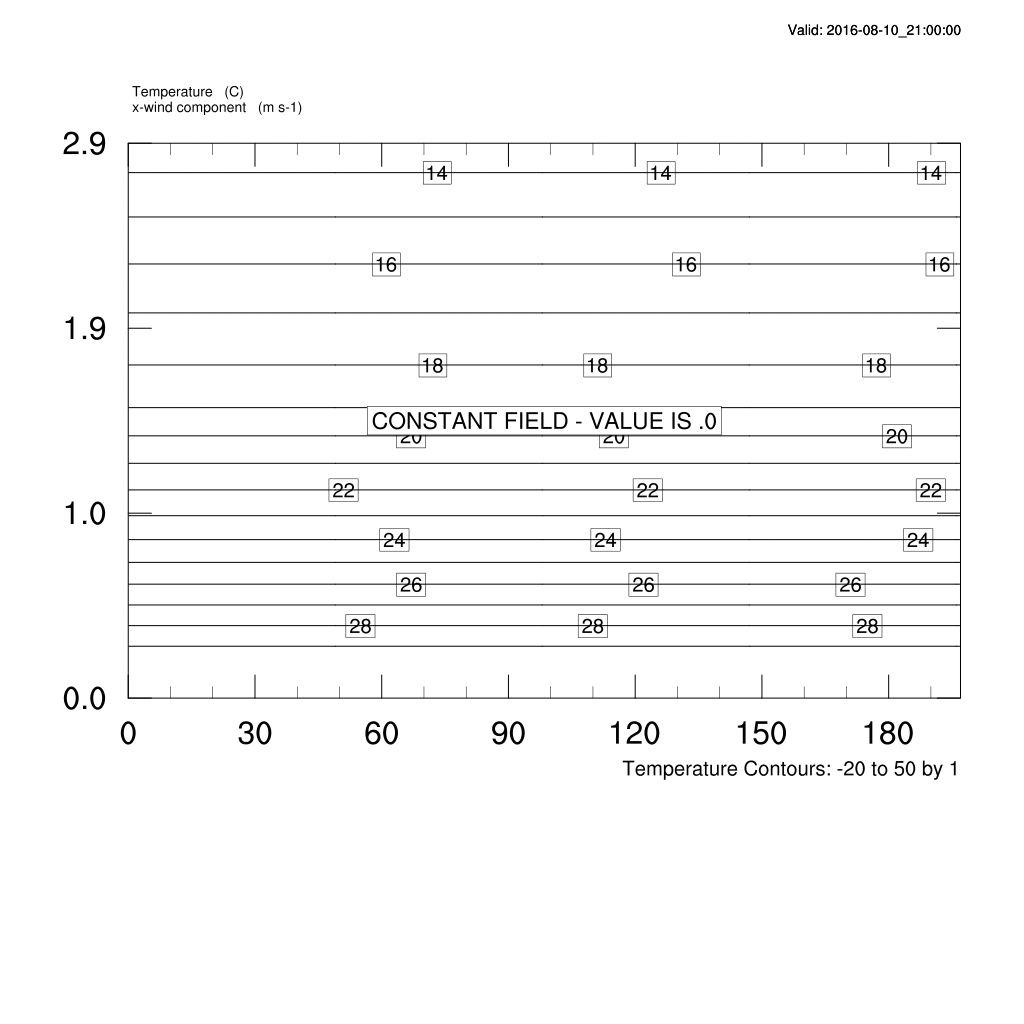
290K

300K

water

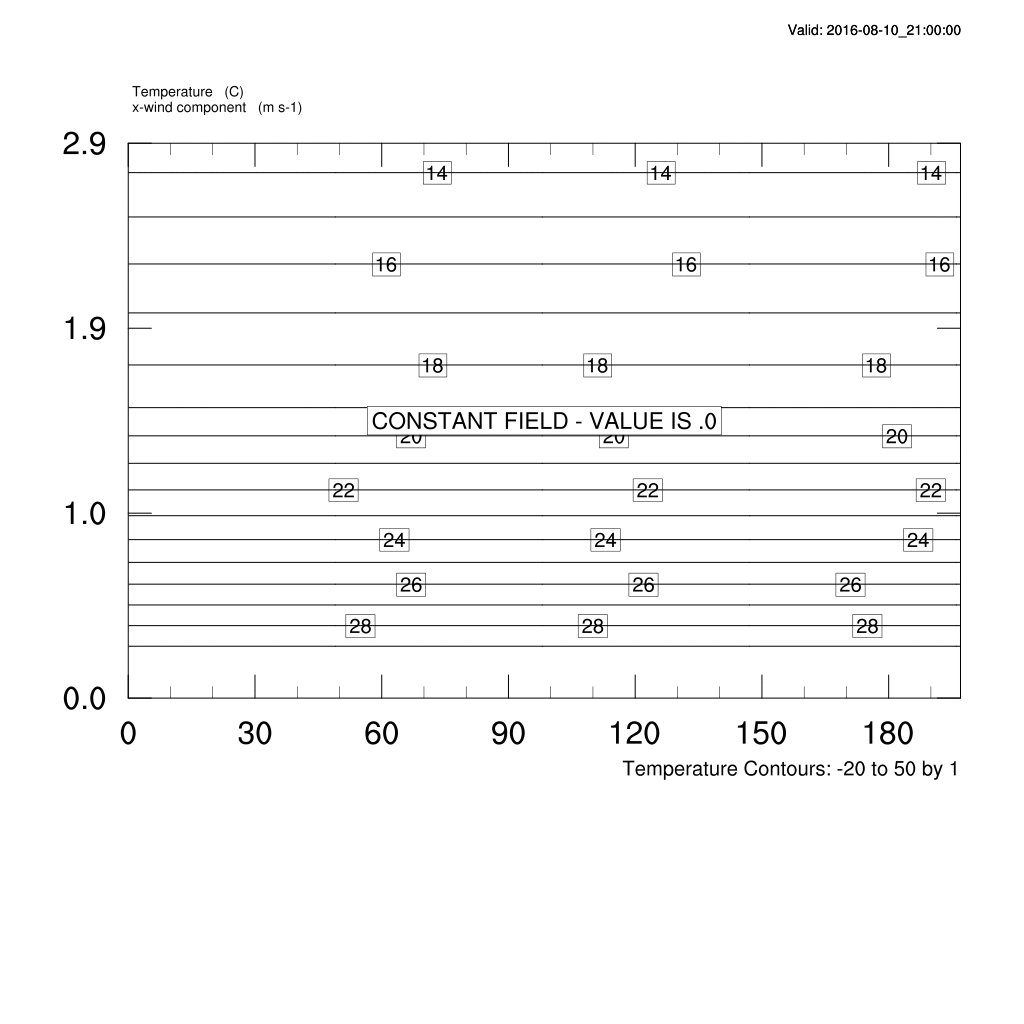

In timeseries of Case2(40km of grass or water at the edge + 20km of grass or water at the center of urban composition) above, we've found that temperature change phase is almost same with different setting of initial temperature.
Therefore, we could also find out that cross-section plots of x-direction wind and temperature is almost same with different initial temperature in total 60km of grass or water in urban structure.
280K
grass
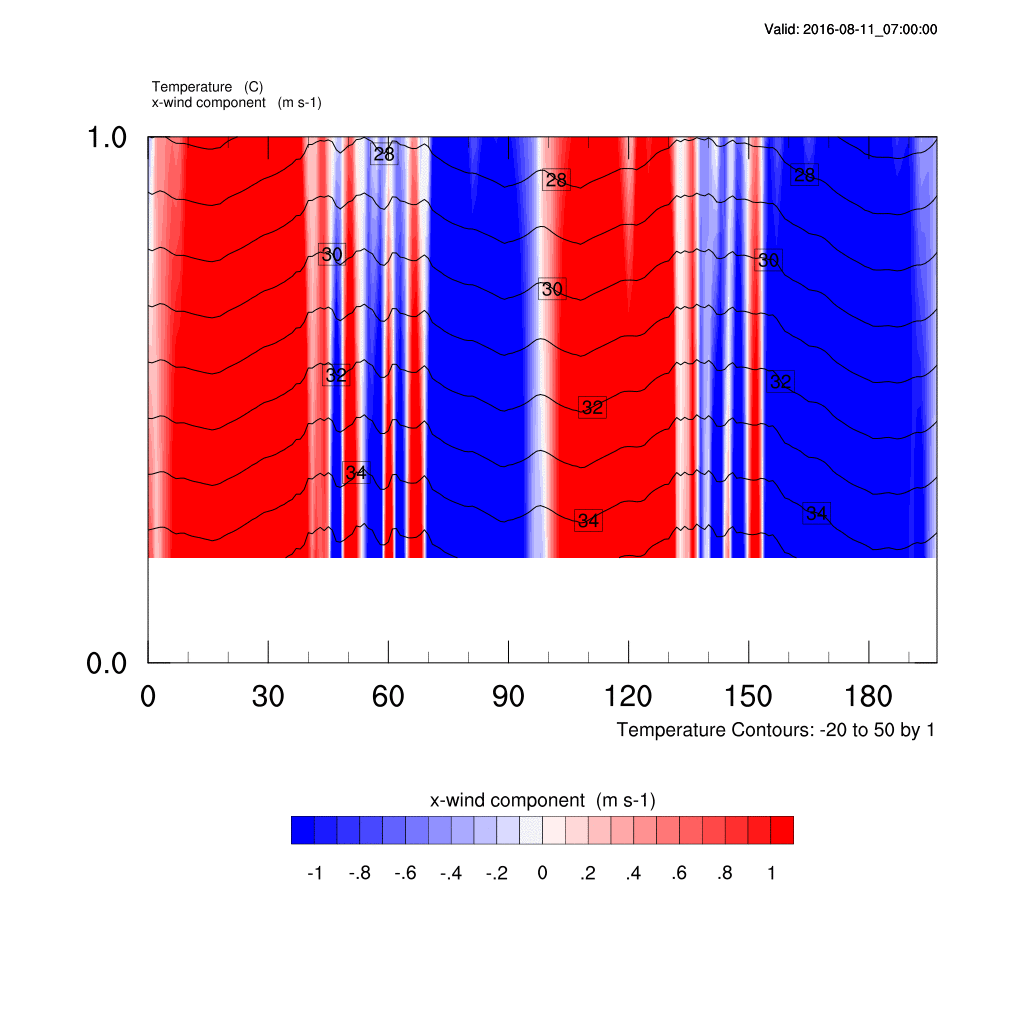
290K
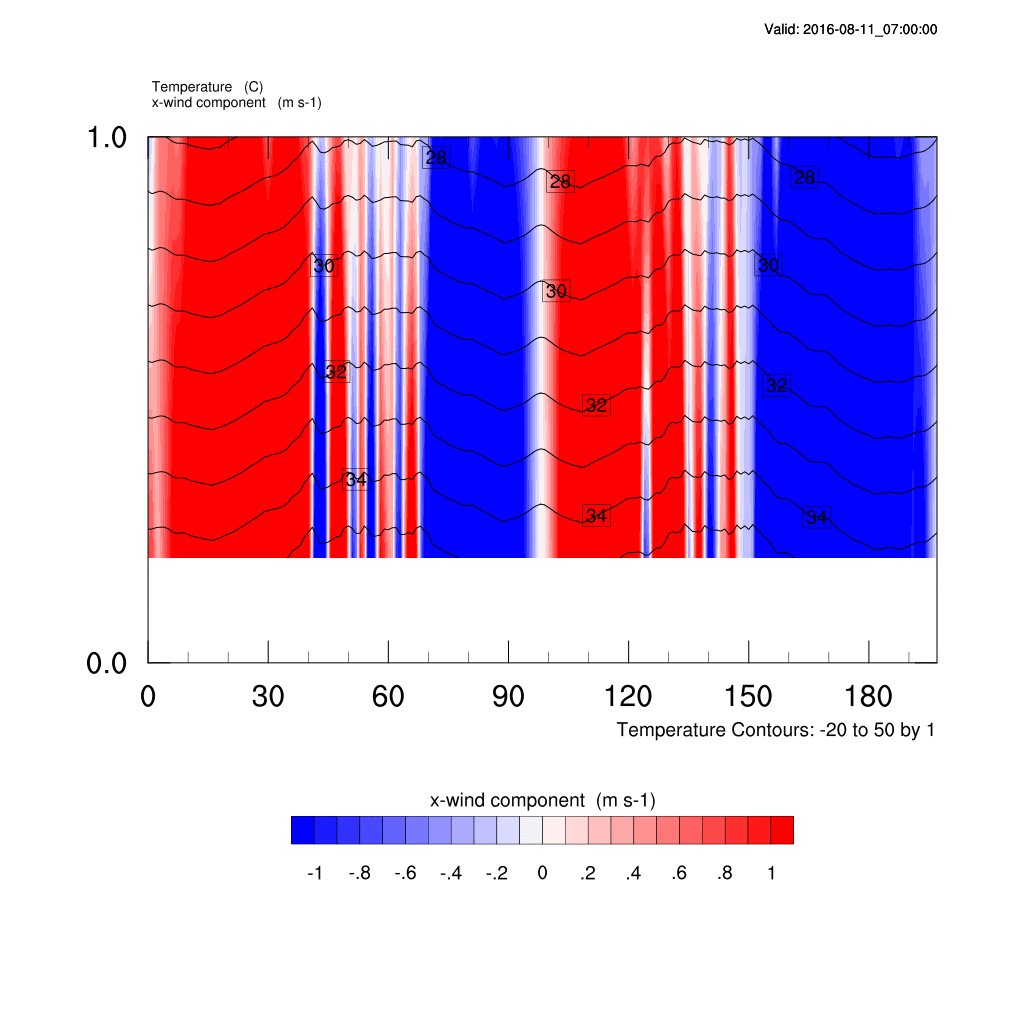
300K

water
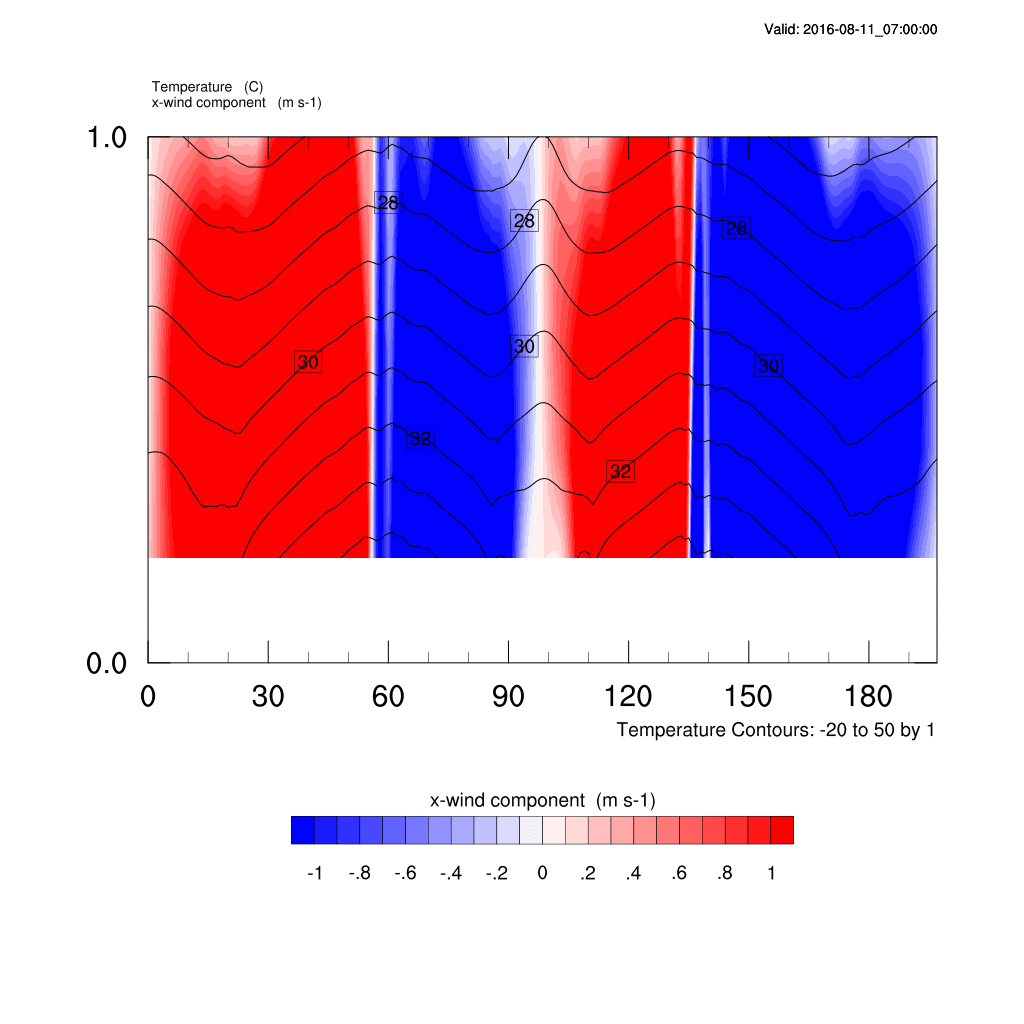
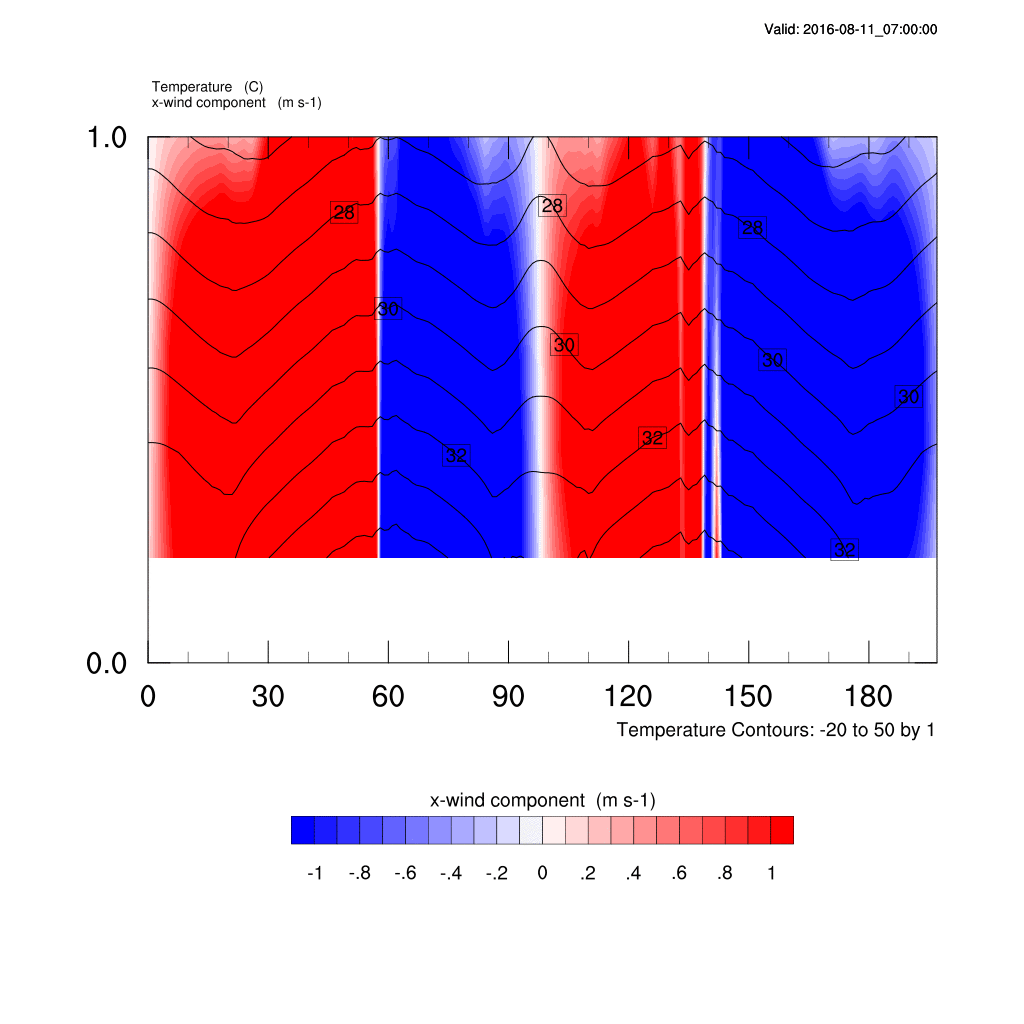
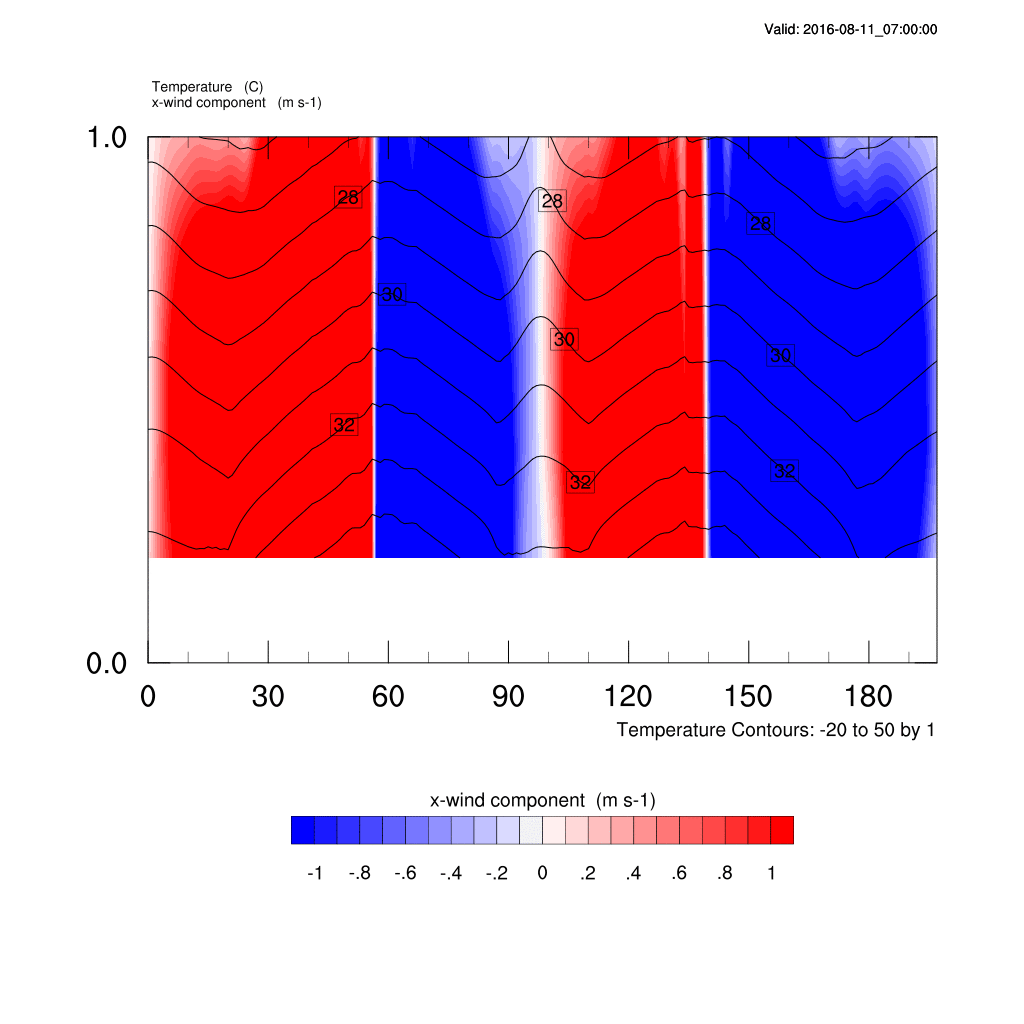
This is the image of cross-section plots of 07UTC, when the x-direction wind is maximum. It shows that in each urban composition, the only variable, initial temperature, doesn't affect the x-direction wind phase and temperature at each height once again.
bottom of page